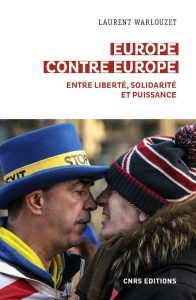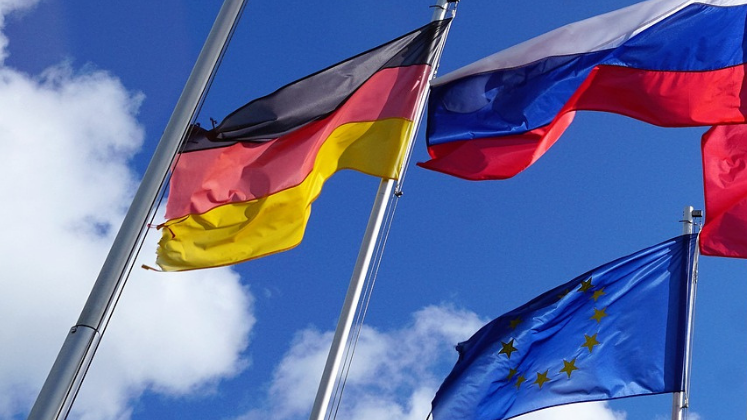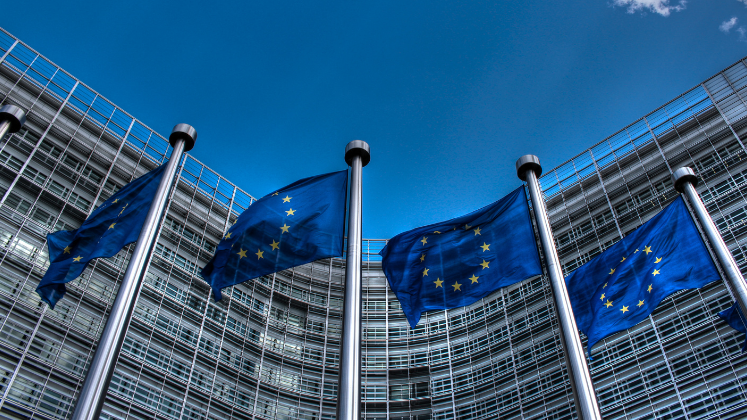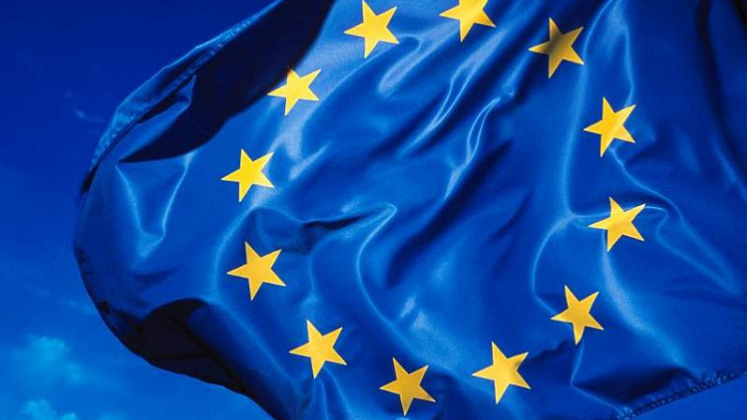In Europe contre Europe: Entre Liberté, Solidarité et Puissance, Laurent Warlouzet addresses the history and present of European cooperation, looking at what social and political actors in Europe and beyond need to address to embed positive change. This brilliantly written book draws on a depth of historical resources to provide insights that will be of interest to any readers wanting to understand the evolution of economic and social policies in and beyond Europe, writes Giada Lagana.
Europe contre Europe: Entre Liberté, Solidarité et Puissance [Europe against Europe: Between Liberty, Solidarity and Power]. Laurent Warlouzet. CNRS Editions. 2022.
Find this book (affiliate link):![]()
 Too often societies and political actors do not fully appreciate the different elements that are needed to embed change. Too much time would be required to investigate the roots of the issues to invest in the ensuing large-scale adjustments required. In Europe contre Europe: Entre Liberté, Solidarité et Puissance [Europe against Europe: Between Liberty, Solidarity and Power], Laurent Warlouzet provides this necessary in-depth analysis of the elements societal and political actors in Europe and beyond should address to embed positive change in the current state of political affairs.
Too often societies and political actors do not fully appreciate the different elements that are needed to embed change. Too much time would be required to investigate the roots of the issues to invest in the ensuing large-scale adjustments required. In Europe contre Europe: Entre Liberté, Solidarité et Puissance [Europe against Europe: Between Liberty, Solidarity and Power], Laurent Warlouzet provides this necessary in-depth analysis of the elements societal and political actors in Europe and beyond should address to embed positive change in the current state of political affairs.
The book addresses the genesis of European cooperation in its entirety, from 1945 onwards. Warlouzet’s objective is not only to focus on the European Union (EU) and its predecessor, the European Economic Community (EEC), but also to take into account all forms of European cooperation. Such an undertaking allows the book to explore all the opportunities and constraints opened up by our times of crisis, through a historical investigation of each and every one of them.
The book is brilliantly written and it has been published in French by CNRS Editions. A project is currently underway whereby it will be imminently translated into English. The book expands on a vast trove of literature in history, political science, economics and law. The analysis is also rooted in never-before-seen archives, primary for the pre-1992 years, crisscrossed with several semi-structured elite interviews. A number of notable names appear in this list, including, for example, Peter Denis Sutherland, the former European commissioner with responsibility for competition policy. This methodology allows the author to move beyond official discourse and contemporary accounts to uncover a deeper layer of decision-makers’ motivations. In addition, archival research is helpful in revealing alternative paths not considered or taken by politicians and policymakers.

Photo by Mika Baumeister on Unsplash
In more concrete and politically charged terms, the book problematises the process of making sense of the intensity and diversity of European cooperation in light of the past. Such problematisation is central to Warlouzet, who has followed many other historians and political scientists investigating the nature of the changes necessary for the EU to confront contemporary issues, such as the Brexit process or the COVID-19 crisis. ‘The EU’s same existence is constantly questioned,’ he argues. ‘On one hand, the liberal and market-oriented model is criticized as some of its neoliberal features have been identified in the eurozone crisis. On the other hand, the attachment to the socially-oriented model has pushed non-state actors (trade unions and business organizations) in the United Kingdom (UK) to support the ‘‘remain’’ campaign. Being part of a community able to guarantee a number of fundamental social and environmental rights seemed a far better perspective than to leave it.’
In between the liberal and market-oriented Europe and the socially-oriented model, the book identifies a third facet of European cooperation, which is far less obvious and based on a more assertive posture and power. This third model reflects a clear will to better define Europe’s territorial identity, not only at the level of EU member states, but also internationally. However, exerting power through EU institutions has never been obvious, as the EEC was originally set up precisely to avoid any kind of power politics. Therefore, in the chapters focusing on this theme, the book needs to explore the specificity of the EEC/EU decision-making system. ‘While it is marked by inertia, it is also open to change’, argues Warlouzet, ‘as the coalition of actors is broader than at the national level’.
Without EU institutions, for example, France would definitely not have accepted the 1980s legislation on car emissions, adopted under pressure from Northern countries. Germany has certainly played a central, but not dominant, role in the institutions. Usually, Bonn, and then Berlin, have had more moderate aims than both Paris and London, so Germany was, in the end, closer to the final compromise. Like all actors, Germany also had to compromise on many policy issues (including the common and single market, the Common Agricultural Policy (CAP), the monetary union and so on). However, here is where Warlouzet could have gone a bit further in providing us with some more practical conclusions. The reflections are in places built around vague notions: the relationships between different levels of government, EU actors and networks and power politics within the EU remain blurred.
Europe contre Europe has the merit of unveiling a new perspective on Brexit. The UK appears in this book as a major actor that has wielded considerable influence on the organisation of European cooperation. Since 1956, it has constantly promoted the setting up of a vast free trade area, with this project popping up again regularly, notably after the 2016 Brexit vote. In this regard, former UK Prime Minister Margaret Thatcher was fiercely supportive of the single market programme (which she could have vetoed), but only if it had a ‘deregulatory’ twist.
Britain has also played a crucial, if largely underestimated, role in social Europe, notably in terms of regional and environmental policy. However, as ‘Europe-bashing’ has always been popular, this role has been largely underestimated, thus leaving Britain with the image of an ‘awkward partner’: a term endorsed by former British Prime Minister Theresa May in 2017 and actually used by British diplomats in 1980. In fact, the new archival evidence investigated by Warlouzet proves both the proactive role of the Thatcher administration in the first years of the single market programme and its deliberate willingness to hide this enthusiasm for European integration out of internal political considerations.
Europe contre Europe has many merits. It draws on a depth of historical resources, provides elements that are stimulating – particularly on the origins of Brexit – and does not cloak its argument in verbose language. At the same time, it would be wrong to classify Warlouzet exclusively as a historian, given how he easily straddles history, political science and economics. This is a book also worth reading for anyone interested in the evolution of economic and social policies, from inflation to gender equality and environmental protection.
Note: This review gives the views of the author, and not the position of the LSE Review of Books blog, or of the London School of Economics and Political Science. The LSE RB blog may receive a small commission if you choose to make a purchase through the above Amazon affiliate link. This is entirely independent of the coverage of the book on LSE Review of Books.







